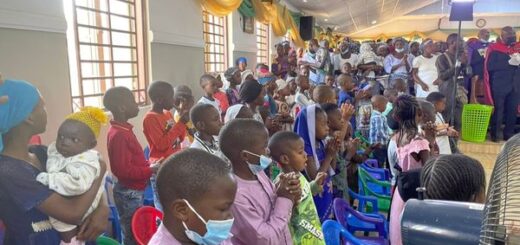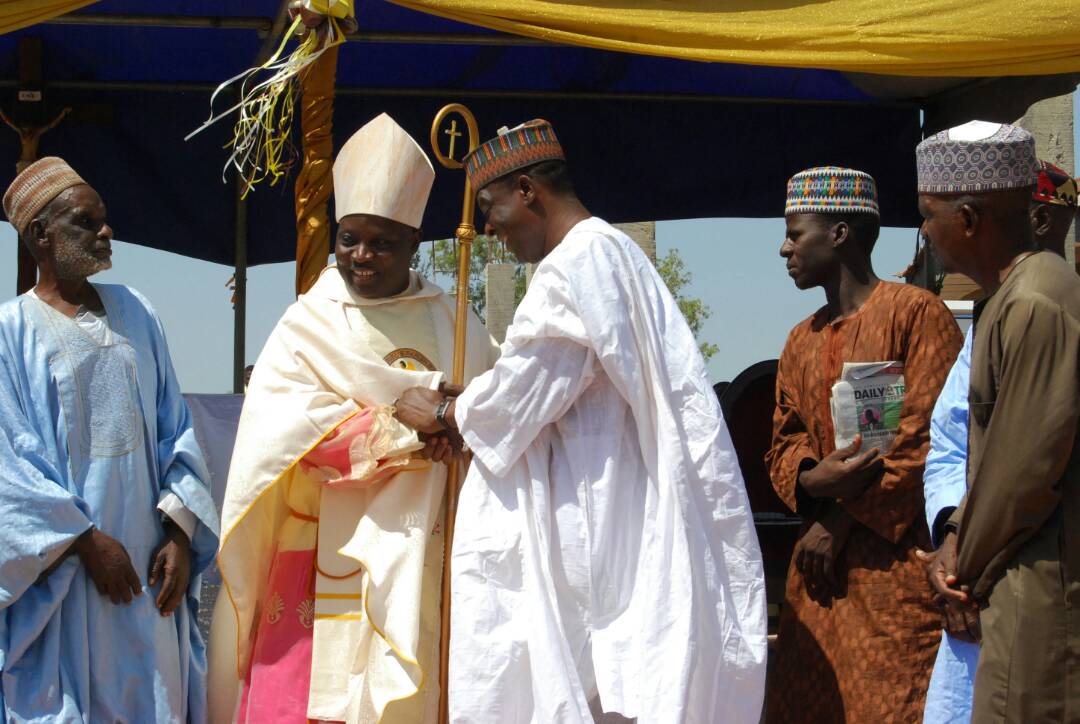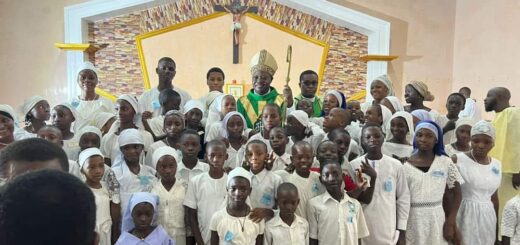A Trusting Faith That Never Fails
by ARCH BISHOP · October 2, 2022
TWENTY SEVENTH SUNDAY, YEAR C (OUR LADY QUEEN OF NIGERIA PRO-CATHEDRAL FEAST/CULTURAL DAY), OCTOBER 2, 2022, HOMILY BY ARCHBISHOP I. A. KAIGAMA
READINGS: Hab. 1: 2-3, 2: 2-4; Ps. 94(95): 1-2, 6-9; 2 Tim. 1: 6-8, 13-14; Lk. 17: 5-10
A Trusting Faith That Never Fails
The readings of the 27th Sunday in a special way bring out different dimensions of how we could live a life of strong faith in God. Hebrews 11:1 tells us that “faith is the assurance of things hoped for, the conviction of things not seen”. St. Paul teaches that everyone has been given a measure of faith (cf. Rom. 12:3).
In the first reading, Prophet Habakkuk who reflected on the many sufferings of the Israelites in the hands of the Babylonians lived during the fall of Jerusalem around 586 BC when their pagan neighbour, Babylon, invaded and conquered Jerusalem. Prophet Habakkuk, a man of prayer and unshakable faith and hope in God, encouraged the Jews during their moments of national crisis, violence and calamities and assured them that even if it seemed that God was in support of the excesses of the Babylonians, He would still bring help and relief.
The Prophet was frustrated into thinking that God was perhaps silent in the face of the pains of His people, but God responded and encouraged prophet Habakkuk and His people to be patient; to hold firmly to their faith because “…the upright man will live by his faithfulness” (Hab. 2:4).
On faith, St. Paul urges us in the second reading to rise up and stir into flame the gift of our faith since we were not called to timidity and fear. He says when we were called we received power, love and self-control and that all these have been given to us by the Holy Spirit who dwells within us. When a Christian receives the gift of faith and does not fan it into flame by living it out, the faith soon begins to grow cold and weary. Our faith fanned into flame must result in good deeds, as “faith without deeds is dead” (Jas. 2:26). Our faith must grow to maturity and not remain an infant faith.
It is not strange that the disciples in the Gospel reading today asked Jesus to increase their faith, a faith that remains steadfast in the face of difficulties and holds on to God irrespective of trials; not the kind of faith that refuses to take the doctor’s medical advice to treat malaria and only waiting for healing from heaven or expecting miraculous amounts in one’s bank account without working hard for it.
Most times we pray for an increase in income, wealth and power but we rarely pray for an increase in faith. We must remember that Jesus said, “If you have faith as small as a mustard seed, you can say to this mulberry tree, “Be uprooted and planted in the sea,’ and it will obey you.” (Lk. 17:6) With God “all things are possible”.
Our “faith” in Nigeria as a nation as we celebrate our 62nd independence, despite that innocent people are still in captivity and millions traumatized by hunger and poverty, and students are kept out of school for over seven months, still leave us convinced that God never fails and those who trust in Him are like Mount Zion that cannot be shaken. We shouldn’t love or serve God only when we have plenty money, food or enjoy good health and other blessings, but the moment hard times come, we become angry, indifferent or even atheistic.
Today, as you parishioners of Our Lady Queen of Nigeria Pro-Cathedral mark your Parish feast/cultural day, I hasten to emphasize the interconnection between faith and culture. Faith is not against culture and culture is not against faith, even though sometimes the two may be difficult to reconcile. Some cultural practices and beliefs run counter to religious beliefs, e.g. where in the past, twins or children who brought out their upper teeth first were considered as bad omens or worse, the caste systems that discriminated against, degraded and excluded others.
By the incarnation, we refer to Christ as “man of all cultures” who has helped us to discern and live according to God’s will in the context of our respective cultural traditions (inculturation). As “grace builds on nature,” cultural values must not be jettisoned as some missionaries did when they arrived in a community with their rigid Christian message: don’t marry two wives, don’t drink alcohol, don’t dance juju dances. They did not last. Catholic missionaries, who arrived after, permitted the people to have their drink, dance and marry as they were used to, but gradually catechized them. Little wonder, such a missionary strategy produced fruits including me standing before you today.
The positive aspects of culture can enhance religion. In our culture worship was more than merely getting rich materially; doors were left wide open without fear, farm products left in the farm were safe; respected elders would sit under the tree to resolve problematic issues; life was considered sacred, hard work an imperative, and even if people went around naked, there was a high level of morality. It was a cultural shame to become pregnant before marriage. Festivals such as new yam, “new year,” wrestling competitions, prayers for rain, kola breaking ceremony including our native languages must not be abandoned in favour of so-called civilized foreign tongues.
In this month dedicated to our Blessed Mother, Queen and Patroness of Nigeria, may her life inspire all of us. I encourage all to pray the rosary and to actively take part in the October devotions. I urge these candidates to be confirmed to hold on to God at all times and to join societies like Holy Childhood, Block Rosary Crusade, Young Catholic Students (YCS), Catholic Youth Organization of Nigeria (CYON), and not to be indifferent in the Church. We pray too for all Catholics to know their Catholic faith better and pass it to their friends, neighbours and children.
OUR LADY QUEEN OF NIGERIA, PRAY FOR US.




